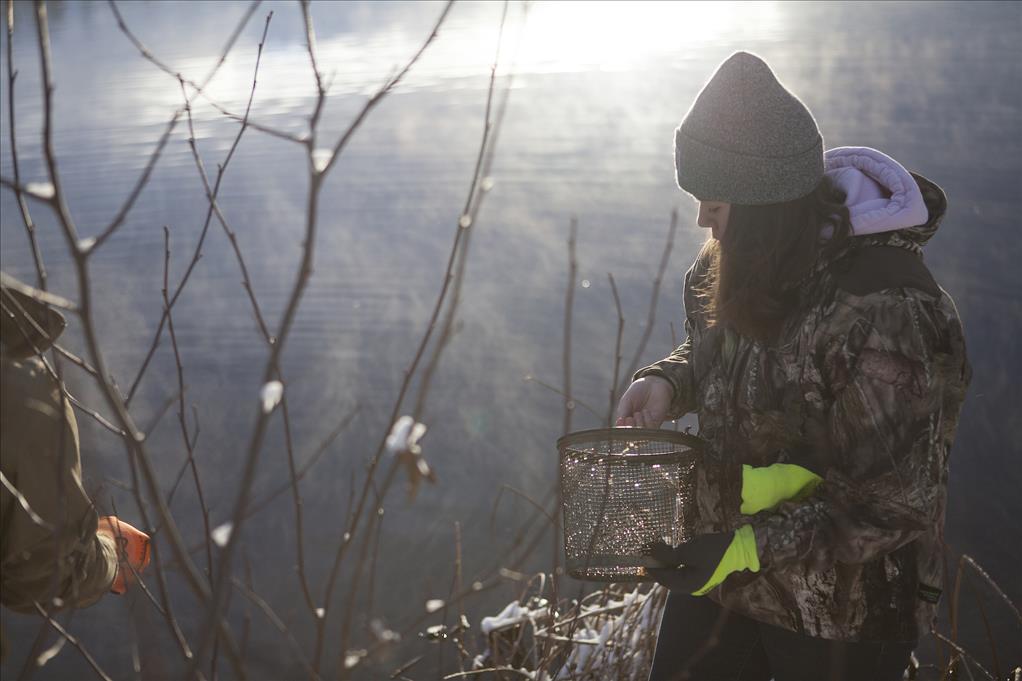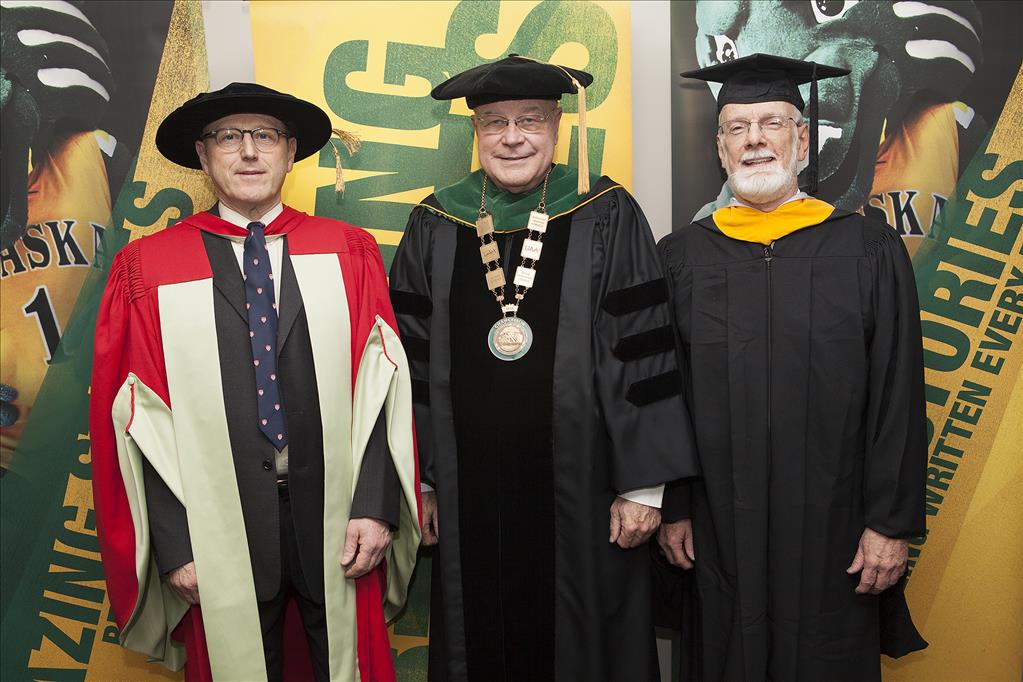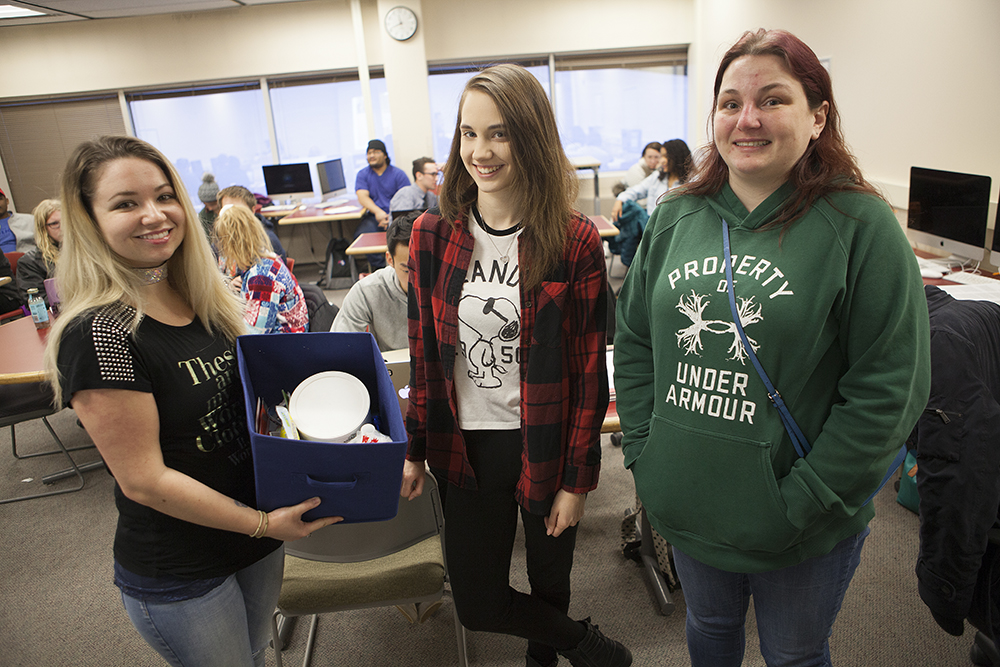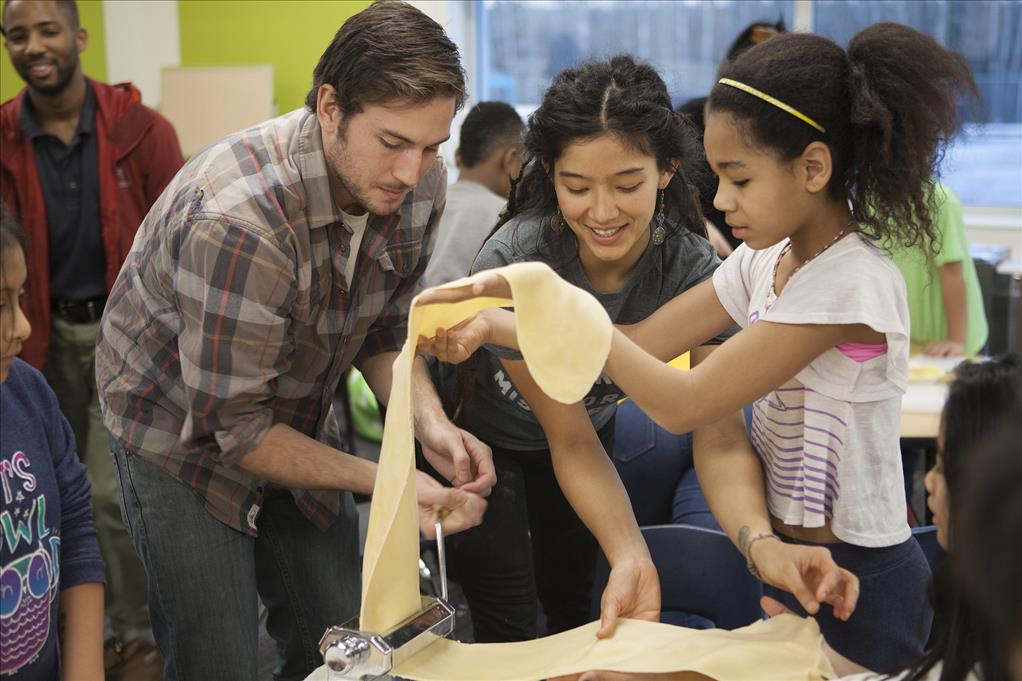'These kids rise to challenges, they really do'
by Tracy Kalytiak |
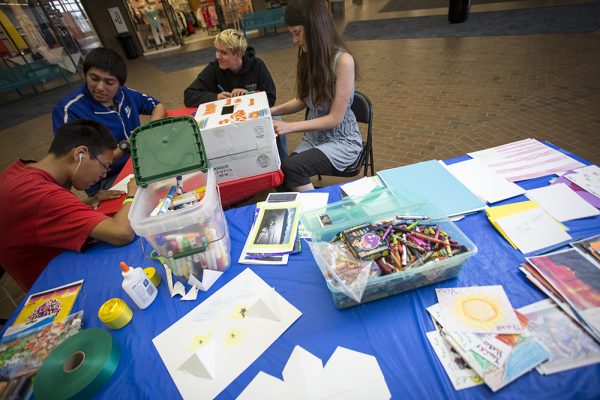
The UAA Center for Human Development provides a summer job-preparation academy designed for teens who struggle with cognitive challenges such as autism, ADHD and difficulties with reading or social skills. (Photo by Theodore Kincaid / University of Alaska Anchorage)
Three years ago, then-13-year-old Eduardo quit Bartlett High School's Reserve Officers' Training Corps (ROTC). The reason? Maps.
"You have to figure them out, use the numbers," he said. "It's kind of hard. I failed a couple of tests."
Eduardo still hopes-someday-to join the military. Now, however, he wants to find a job, preferably in construction. His teacher told him about Tapestry, a UAA Center for Human Development summer program that helps teens coping with such things as reading difficulties or autism learn skills they'll need to succeed at work.
"She was telling me it could help me get a job," he said. "She knew I was desperate. She knew I wouldn't have a job in the summer-I had a job prepping food at school but it's only an hour job, during school days."
Gaining experience
Eduardo and three other Tapestry students-Isabel, Bly and Nolan-recently spent five hours at a table inside Northway Mall, asking shoppers to help make or sign cards to send to people serving in the military.
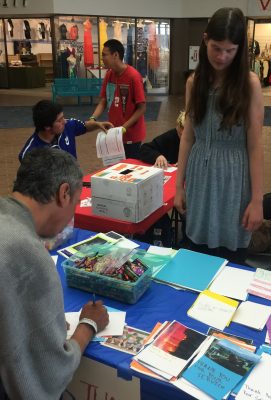
Isabel watches a passer-by sign a card that will be sent to someone in the military. Isabel is enrolled in UAA's Tapestry program, helping kids with intellectual disabilities adapt to challenges they'll encounter in the workplace. (Photo by Tracy Kalytiak / UAA)
"I skateboarded here from Muldoon," said Eduardo, during his hours at the mall. "I'm a hard worker and just do whatever I'm supposed to do, finish it on time. I'd like to learn new skills but don't know what specific ones I need, so doing this was really cool."
Tapestry helps high school students from the Anchorage School District who have some type of intellectual disability, says Marg Halloran, the program's student services coordinator. Many of these kids have never had a job.
"In order to get that initial work experience, they're with us and now they have something for their résumé," she said. "But it's more than that-we want them to think a little broader about what they might be able to do in their future. When you're talking to them about thinking about their futures, you also want to ground it in [the question of] how are you going to get there? I think the understanding of your own disability is important: When you have to talk about it and when you don't."
High expectations
CHD, a component of the UAA College of Health, offers this community outreach because it is a University Center for Excellence in Developmental Disabilities in Education, Research and Service (UCEDD) authorized by the Developmental Disabilities Assistance and Bill of Rights Act of 2000. It serves the entire state of Alaska.
Tapestry is one program, which had 14 students last summer, eight this summer. There is also a year-long program in which UAA students may participate "if they need social skills kind of [assistance]," Halloran said. "That's kind of common. There are quite a few students at UAA with disabilities. If they need what we can offer, they're welcome to take our classes. Summer academy is mainly for high school students, up to 21 years old."
The year-long program can accommodate students 18-26 who are transitioning to adulthood and might need help with independent living skills as well as social skills.
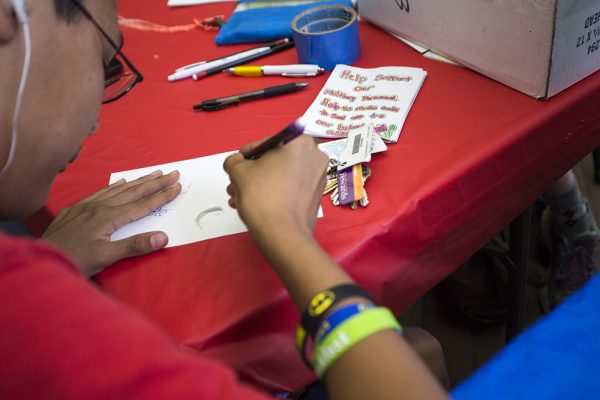
Nolan is taking part in a summer academy presented by UAA Center for Human Development for teens who want to get jobs but struggle with cognitive challenges such as autism, ADHD and difficulties with reading or social skills. (Photo by Theodore Kincaid / University of Alaska Anchorage)
The Alaska Division of Vocational Rehabilitation supports Halloran's students, paying fees and for internships they receive.
During the first part of the summer program, the students spent time in a classroom and computer lab, researching career possibilities and learning about disability disclosure in the workplace: How much they need to tell prospective employers about their disability, in order to secure accommodations they need to be able to function effectively in a workplace.
For example, an employer could provide audio instructions or pictures or diagrams to an employee who needs to perform certain tasks but can't read written instructions. A timer that beeps could help an employee who has difficulties with managing time needed to complete a task.
While working at Northway Mall, Isabel helped shoppers select crayons and markers for their appreciation cards.
Her mother told her about Tapestry before the end of the school year.
"At first, I didn't want to do it because I thought it would be taking up my whole summer, but I decided to do it," she said. "I wanted to find some work this summer and she said they would help me find a job. It's been fun, real fun. The last couple of weeks, I've been getting to do a lot of art-making cards, drawing a lot. I get to basically draw all day."
Isabel said she did more than simply draw, however.
"We worked in the computer lab, researching what jobs we'd like to do, how well those jobs are doing," she said.
She's learning to adapt to challenges.
"I have trouble focusing sometimes, getting myself to talk with other people, to talk louder," she said.
Halloran responded. "That surprised me, because you're the most focused person I know," she said. Isabel smiled and Halloran continued: "Isabel recognized that four military guys were here at the mall, so she got cards to them!"
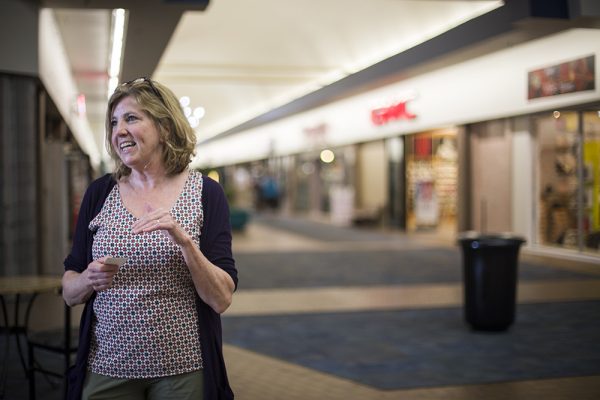
Marg Halloran, student services coordinator for the UAA Center for Human Development, supervises a summer academy designed for teens who struggle with cognitive challenges such as autism, ADHD and difficulties with reading or social skills. (Photo by Theodore Kincaid / University of Alaska Anchorage)
A community-service project is a key element of the summer program, taking place prior to placement in a 40-hour paid internship, Halloran said.
Her class made the cards for the A Million Thanks nonprofit to send to people serving in the military. The other academy class decided to collect pet supplies outside a Petco store to help an animal shelter.
"The service-learning projects are really helpful," Halloran said. "They help us get some feedback into how students would be in the workplace because the next step is we're placing them. So we have to have a little bit of an understanding of the students, both what is their interest and where we think they would fit. Then when we talk to an employer, we know what their strengths are."
Halloran says Tapestry has really high expectations.
"Because until you show me you can't do it, why wouldn't I expect that you could?" she said. "These kids rise to challenges. They really do. Having a disability just means you need an accommodation to bring your opportunity to a level of other people. It doesn't mean you're not capable. It's to find what environment you'll be most successful in. That's our job."
Written by Tracy Kalytiak, UAA Office of University Advancement
 "'These kids rise to challenges, they really do'" is licensed under a Creative Commons Attribution-NonCommercial 4.0 International License.
"'These kids rise to challenges, they really do'" is licensed under a Creative Commons Attribution-NonCommercial 4.0 International License.










